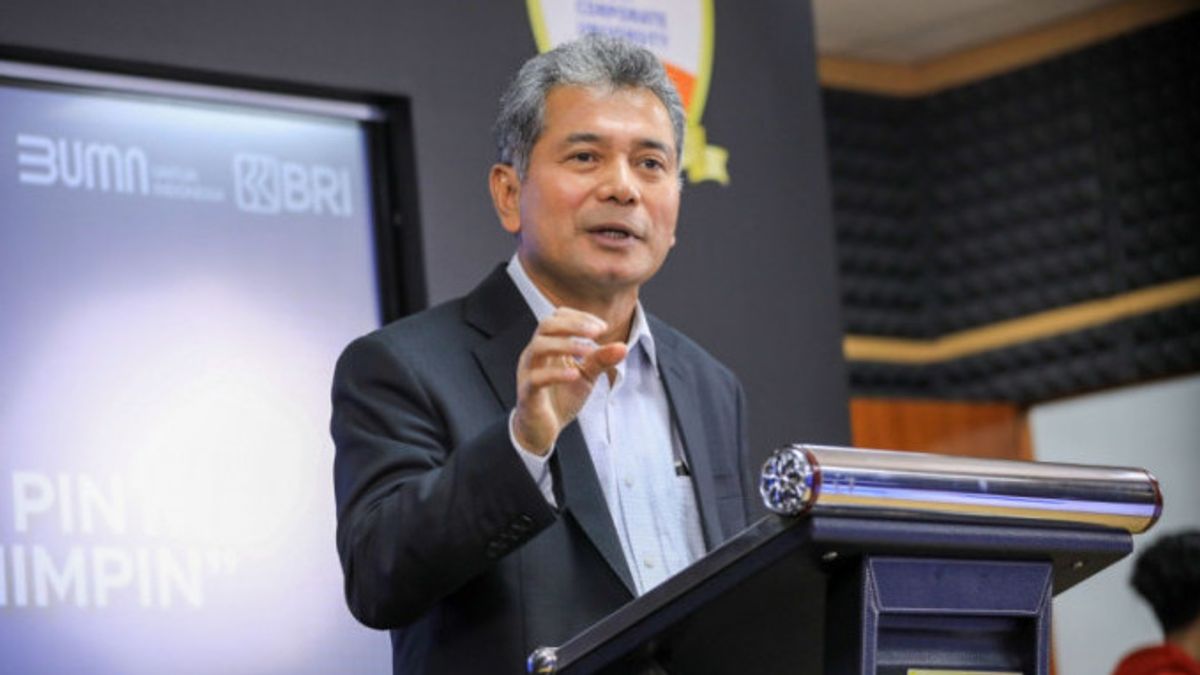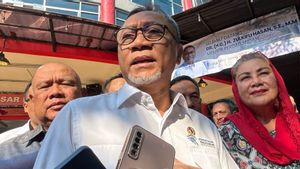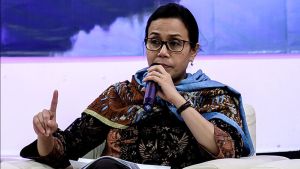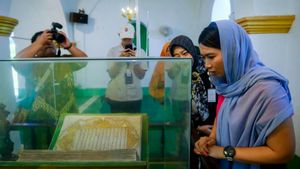JAKARTA - The Financial Services Authority (OJK) announced that the policy of restructuring bank credit for the impact of COVID-19 had ended on March 31, 2024.
Therefore, PT. Bank Rakyat Indonesia (Persero) Tbk welcomed the decision.
Regarding the end of the policy of restructuring bank credit affected by COVID-19, BRI was welcomed.
The President Director of BRI who is also the Chairman of Himbara (State-Owned Bank Association), Sunarso said, the policy has proven to have been able to save most of the MSME business during the COVID-19 pandemic which began to spread in Indonesia in 2020.
Sunarso revealed that BRI itself has not used this policy internally since 2023 as an effort to implement prudential banking.
"BRI has also implemented anticipatory measures in response to the end of the relaxation of the COVID-19 restructuring in March 2024, where BRI has prepared a soft landing strategy. And we are optimistic that the end of the relaxation will not have a significant impact on BRI's credit quality performance or financial performance in general," he added in his official statement, Monday, April 1, 2024.
On the other hand, in anticipation of BRI's risk, it also remains balanced by providing adequate reserves, where until the end of December 2022 BRI's NPL Coverage was recorded at the level of 305.73 percent.
The reserves are used to remove MSME loans which are completely unrestructured anymore.
So that in December 2023 the NPL Coverage fell at the level of 229.09 percent, but the reserves are still very adequate in the event of a deterioration.
SEE ALSO:
Previously, in mid-February, BRI President Director Sunarso revealed that the company had recorded a restructuring reduction in the value of credit affected by COVID-19, where the outstanding COVID-19 restructuring credit as of December 2023 fell to IDR 54.5 trillion from IDR 107.2 trillion in the same period the previous year.
"If calculated from the peak, Rp210 trillion has been released from the status of restructuring, so now the outstanding is only Rp54 trillion," said Sunarso.
Sunarso also said that since the beginning of the pandemic, BRI has taken strategic steps to save Micro, Small and Medium Enterprises (MSMEs) which have a crucial role in the Indonesian economy.
It is recorded that MSMEs contributed 60.3 percent of Indonesia's total gross domestic product (GDP).
In addition, MSMEs absorb 97 percent of the workforce and provide 99 percent of the jobs in Indonesia.
However, the COVID-19 pandemic has put heavy pressure on MSME players, because they cannot carry out economic activities as usual.
"The focus of BRI in empowering and reviving the activities of Micro, Small and Medium Enterprises (MSMEs) during the pandemic was also a motorcycle for BRI's financial performance at that time," he explained.
For information, during the four years of implementation, the utilization of this credit restructuring stimulus has reached IDR 830.2 trillion, which was given to 6.68 million debtors in October 2020, which is the highest figure in Indonesian history.
As many as 75 percent of the total debtors receiving the stimulus are the MSME segment or as many as 4.96 million debtors with a total outstanding of IDR 348.8 trillion.
In line with the economic recovery that has occurred, the trend of restructuring credit continues to decline both in terms of outstanding and the number of debtors. In January 2024, the outstanding restructuring credit for COVID-19-19 has decreased significantly to IDR 251.2 trillion, which was given to 977 thousand debtors.
The English, Chinese, Japanese, Arabic, and French versions are automatically generated by the AI. So there may still be inaccuracies in translating, please always see Indonesian as our main language. (system supported by DigitalSiber.id)
















